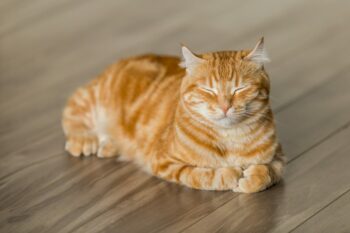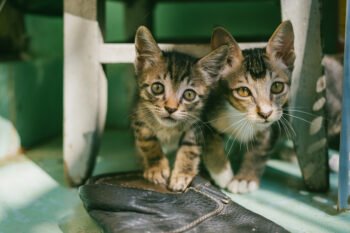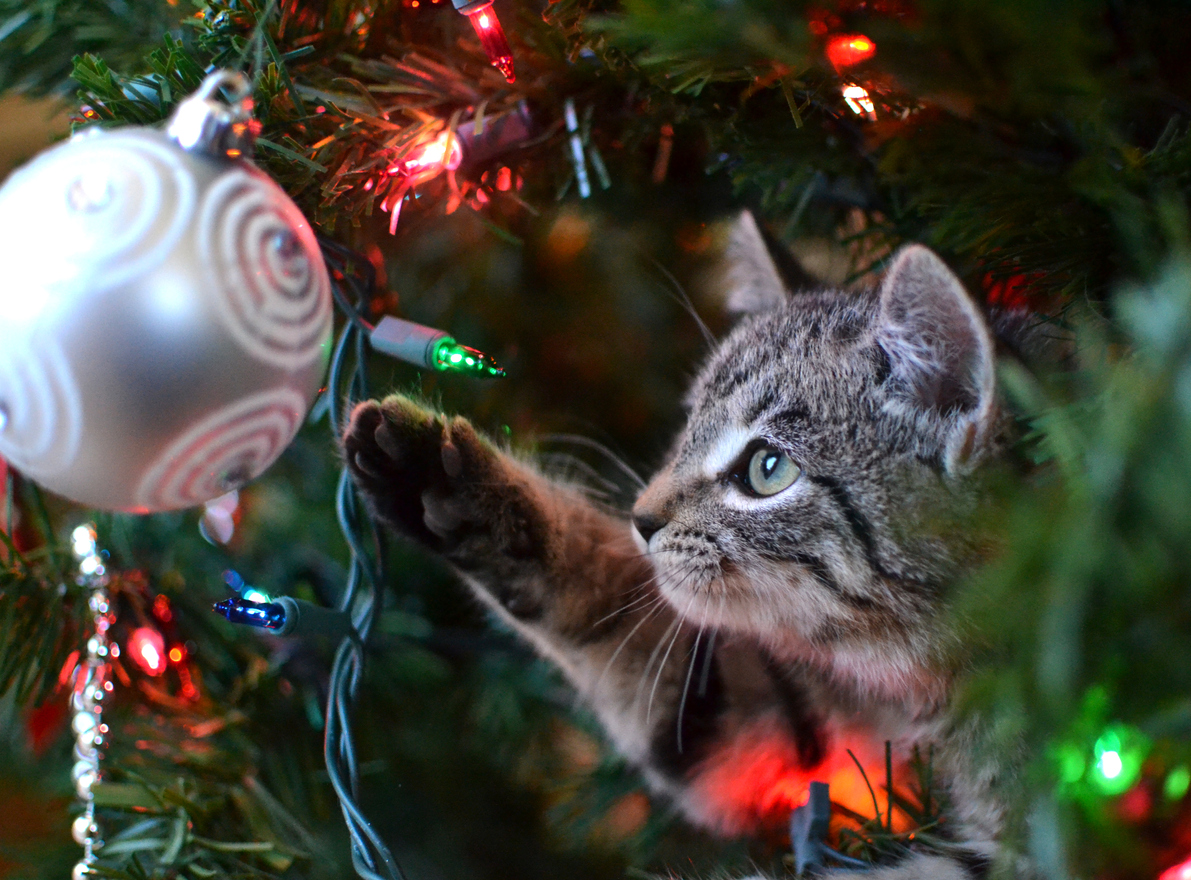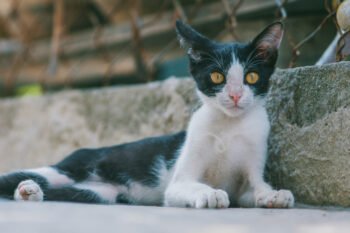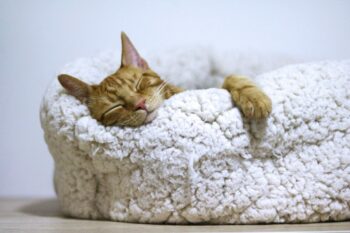Although cats might not be formally diagnosed with Seasonal Affective Disorder or SAD, the mood disorder that causes some people to experience symptoms of depression in the winter, veterinarians and feline fanciers say they do notice similar changes in some cats.
One in three cat owners finds that their pets seem sadder and less playful in the winter, according to a 2007 survey by People’s Dispensary for Sick Animals (PDSA), England’s largest veterinary charity. Dr. Elaine Pendlebury, a senior veterinary surgeon with PDSA, believes that low levels of light can adversely affect all animals, including nonhuman ones.
How Winter Can Affect Your Kitty’s Behavior
Like their human counterparts, kitties can show changes in energy levels, appetite, sleep patterns, and temperament when exposure to light decreases. Dr. Elizabeth Colleran, DVM, sees it every winter. Dr. Colleran maintains feline-only practices in both Chico, Calif., and Portland, Ore. The weather might be a bit gray in Portland, but it’s fairly consistent year-round, says Dr. Colleran. Her feline clientele in Portland doesn’t demonstrate noticeable seasonal changes. But Dr. Colleran has noted quite a seasonal shift in the kitties she sees in Chico, which is hot and sunny in the summer but far gloomier during the winter.
“I really do see a difference, I’m absolutely convinced of it,” says Dr. Colleran. In the wild, other cat behaviors, such as mating, are related to exposure to light. It’s therefore logical to assume that the onset of winter might have some effect on your kitty as well, Dr. Colleran explains.
Dr. Debra Givin, DVM, isn’t sure there are physiological reasons for cats to suffer from a seasonal depression. Nonetheless, she notes changes in some felines she sees in her Portland, Maine, practice. “Certainly in the Northern latitudes, I’ve on occasion thought for the older cats,” says Dr. Givin. “As they face another winter, some of them seem to take a turn for the worse. In the wintertime, life is harder. It’s cold and dark.”
Helping Kitty Cope
Fortunately, you can do plenty to perk up your moping feline. Simple changes in your behavior and activities in the winter might also play a role in how your cat is behaving, says Dr. Givin. If you and your veterinarian have ruled out medical causes for your kitty’s malaise, here are several areas to consider when it comes to your cat’s wintertime behavior:
- Exposure to light All cats notice changes in light, so make sure you open curtains to let the sun in, says Dr. Givin. Natural light can be important for your cat’s mood. You can also place a small lamp near your cat’s bed, making sure your kitty isn’t exposed to a hot bulb or isn’t likely to knock the lamp over. Shorter winter days mean your kitty might be stuck in a dark, gloomy house, awaiting your return in the evening.
- Temperature changes Houses can be a bit chillier as we try to trim energy bills. The ideal temperature for cats is 75 F, says Dr. Givin. Since it’s unlikely you’ll keep your house that warm, make sure your cat has warm options, such as a heated cat bed, a bed near a sunny window or a place to snooze near a safe heater. If you keep a litter box in a garage or basement, you might find a change in your cat’s bathroom habits. No kitty is going to be happy about venturing into “a cold, dank basement in January,” Dr. Givin says.
- Sleep patterns “We shouldn’t just assume it’s OK to sleep 23 out of 24 hours a day,” Dr. Colleran says. If your cat is sleeping more than usual, it could be a case of the wintertime blues.
- Activity We tend to slow down in the winter, and it’s easy to forget that cats still require our interaction, says Dr. Colleran. Remind yourself to interact with your cat, especially on those nights when you simply want to curl up on the sofa with a warm blanket. Add novelty to your kitty’s life by changing toys, hanging a bird feeder near a window or simply moving around an assortment of cardboard boxes for your kitty to explore.
- Eating habits Just like people, cats may eat out of boredom or for comfort. If you notice your cat eating more or gaining weight this winter, make sure to take control of its portions and to discuss with your veterinarian how much your kitty should be eating. “If a cat is doing nothing during the winter but sauntering up the food bowl then going back to sleep, it’s no wonder it gains weight,” Dr. Colleran says.
- Dietary supplements. Kittys who experience anxiety or depression during wintertime may benefit from extra supplements in their diet. Humans who don’t get enough natural sunlight in winter are often prescribed vitamin D, but cats may prefer enriched proteins and fats. Adding additional Omega oils to meals can help cats maintain healthy skin and coats, as well as support brain development. CBD oils for cats fortify immune function and reduce inflammation, helping to keep stress at bay.
- Lifestyle changes Our behavior often changes in the winter, say veterinarians. You may have more parties or houseguests, which can place stress on your kitty. Noises around your home may be different, as furnaces rumble and we putter more indoors. Be sensitive to how your feline perceives these changes and whether your behavior places stress on your cat. For instance, a litter box placed near a furnace might not be a big deal in the summer, but it’s a recipe for one stressed kitty in the winter.
Knowing your cat well — winter and summer — is the best way to judge behavioral changes. As Dr. Colleran concludes, “You have to really be aware of what’s going on with your cat.”

